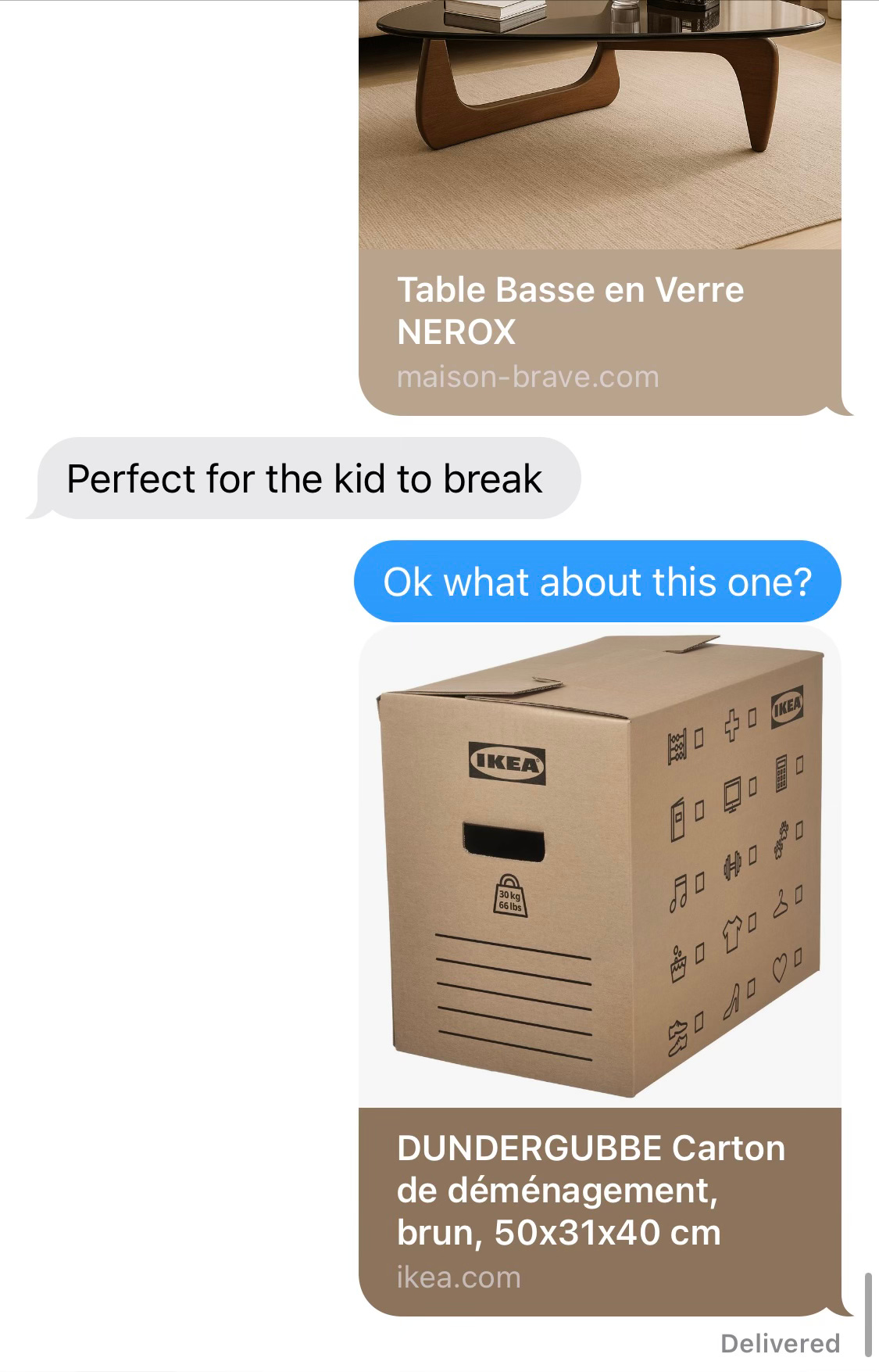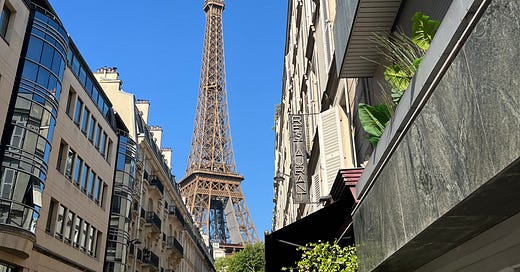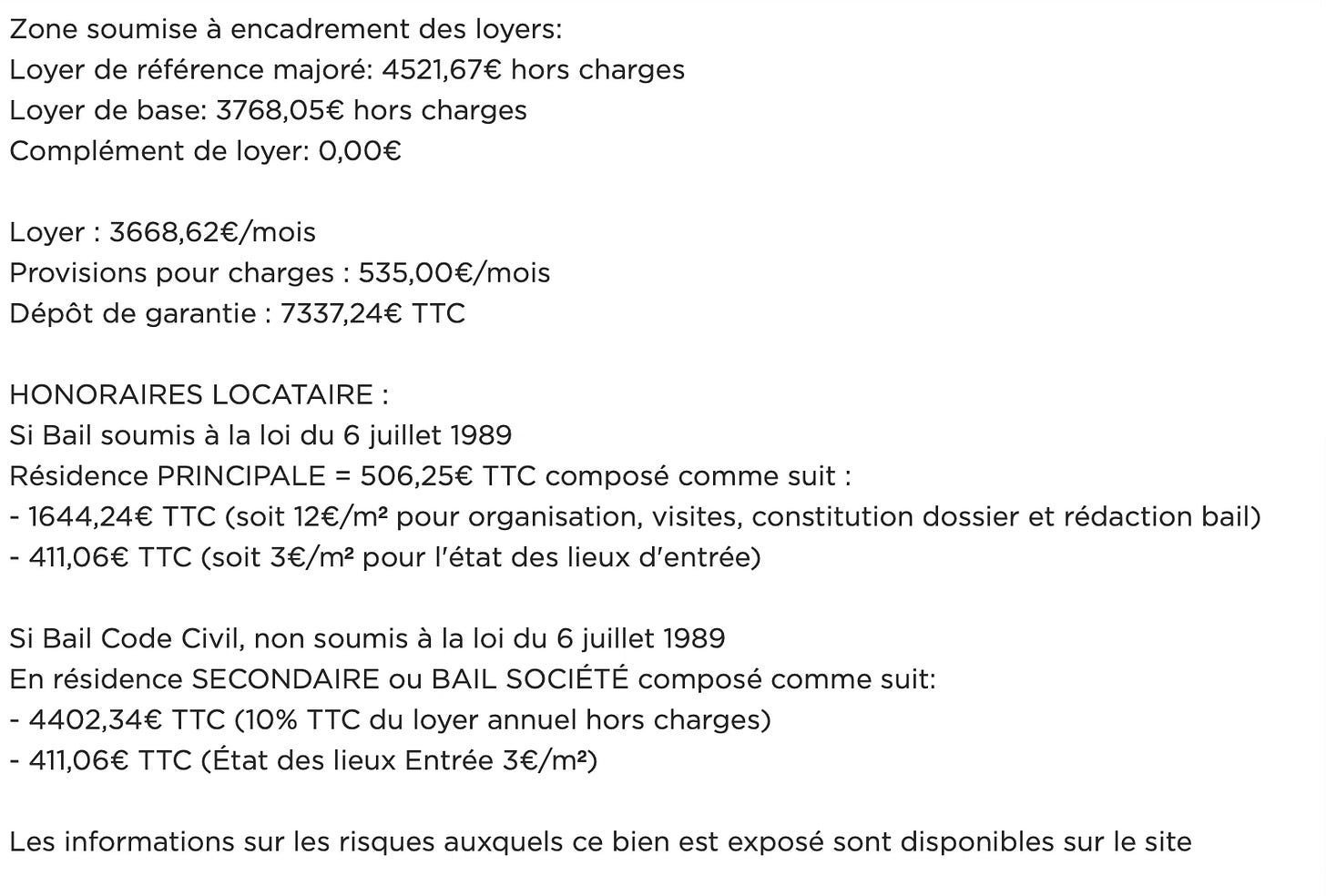What to Know About Renting an Apartment in Paris
Based on our (many) trials and tribulations
A few notes and disclosures before we jump into this post:
Our apartment search and the insights included focus on long-term rentals. For those who are looking for short-term stays (between several weeks to several months) rest assured these are typically much easier to secure.
I am not a real estate agent nor do I have any professional experience. These takeaways and tips are strictly derived from personal experiences of renting apartments in the city for more than eight years.
While I’m sure there are similarities to rental markets in other French cities, I can’t speak for those outside of Paris.
Okay, now that that’s covered, let’s get to it!
Over the past eight years, we’ve rented more than a few apartments in Paris, including both short-term and long-term, as well as furnished and unfurnished. It’s safe to say we’ve learned more than a few lessons along the way—some of which I hope will be helpful to you, too. This recent search was by far the most grueling, stressful in every sense of the word, as the fate of our apartment remained entirely uncertain until just two days before our current lease had ended.
While our story may seem like somewhat of a nightmare, our circumstances made for the perfect storm:
REASON #1: COMMON CRITERIA IN A COMPETITIVE LANDSCAPE
We were looking for a three-bedroom apartment in one of Paris’ most sought after arrondissements, especially popular amongst expats and those working for governmental organizations, creating a highly competitive landscape.
REASON #2: HIGH RENTAL SEASON WITH LOW INVENTORY
Our lease expired in mid-June at the peak of high rental season, however as the months and weeks inched closer to our end date, very little inventory entered the market. We were told that more listings would become readily available as we approached early summer, but that just…never happened. Agents would go on to say that inventory was at an all time low this season.
REASON #3: US-BASED INCOME
While my husband is French, all of our income comes from the U.S., which was the biggest barrier to securing an apartment. Rental agencies and landlords here strongly prefer candidates with full-time French contracts (known as CDIs) which provide more stability and security in the eyes of the landlord.
There are certain ways around this foreign income hiccup, such as third-party platforms that many Paris residents use, which I will get into below.
Here’s a brief snapshot of what our search looked like:
Step 1: Anxiously waited for new listings to appear online.
Step 2: Quickly reached out to the listing agents for more details and to arrange visits.
Step 3: Often encountered resistance, with agents warning that landlords will avoid “complicated” dossiers (applications.)
From my perspective, our dossier appeared relatively strong—we exceeded the income requirements, had a French relative as a guarantor, and included attestations from both GuarantMe and SmartGuarant (private online guarantor platforms.) Yet our dossier remained seen as problematic, so much so that we had a difficult time even securing visits.
For the few we managed to visit, we were subsequently denied in favor of more “stable” candidates, like diplomats, for example (although I’m not sure how “stable” diplomats really are when they are changing posts every few years…)
As the clock counted down, we anxiously began to let go of our preferred criteria, expanding our search to other arrondissements and scaling back our ideal of three bedrooms to two.
I’ll cut to the chase and spare you the rest of the excruciating details and hiccups along the way, and simply say: we finally found our place—an apartment we feel incredibly lucky to call home for our family’s next season of life. Plus, it has three bedrooms!
It’s not our forever home, but it’s absolutely perfect for where we are right now. It’s cozy and lived in. It doesn’t feel too grand or too precious. It’s an ideal setting for our little ones, with the added bonus of renovated floors that muffle their endless running and keep crumbs from settling into the cracks of the traditional Haussmannian parquet.
I fully expect the space to evolve slowly over time, and I’m looking forward to sharing more of that process here! But enough about our personal saga—let’s move on to some helpful insights for navigating a Parisian apartment hunt:
THE DOSSIER
I would highly recommend compiling your dossier before you actively begin your search. It will include all necessary documents like proof of income, identity, employment, etc. Sometimes agencies will require you submit your dossier prior to visiting an apartment, so start the process as prepared as possible (which will definitely come in handy if you also find yourself in a competitive environment where things move very quickly).
FINDING LISTINGS
If you already live in Paris or know people who do, asking friends, colleagues or other connections in your neighborhood if they know of places that will be coming on the market soon will be the most straightforward path to success. Unfortunately for us, while we had a good amount of people assisting us on our search, the low inventory didn’t help our case.
If you’re just arriving to the city or don’t yet have a network to utilize, some foreigners will opt to work with private agents/relocation agencies to help them find and secure a lease. And while that is always an option, I will say that you do not need to hire a private agent to find a place. Majority of listings are posted online, with no off market database that only agents have access to (like the MLS in the US or something similar).
In addition to agencies listing apartments on their own websites, they also post on mainstream platforms that aggregate listings across many agencies. Some of those sites include:
Jinka: Recommended to us by an agent, this app allows you to set your criteria and be alerted as soon as anything comes online.
Others: Seloger, Belles Demeures, Bien Ici, Le Figaro, Logi-Immo, Gens de Confiance (requires an account/membership)
TIP: Don’t depend solely on one site or platform for your search. While there is typically a lot of overlap across sites, there are occasionally a few gems you might miss if you only look in one place.
APARTMENT AVAILABILITY
Sometimes there will be apartments listed several weeks or months prior, however they are typically listed as they come available, so it can be difficult to plan ahead or start your search too early in advance.
FURNISHED VS. UNFURNISHED
Depending on whether you’re looking for a furnished (meublé) or unfurnished (vide) apartment, there are a few key differences to be aware of:
Security deposit: Furnished rentals are typically two months’ rent, while unfurnished are only one.
Lease terms: Furnished rentals require one month’s notice to terminate, while unfurnished require three month’s notice (sometimes less, but generally speaking three months is the standard).
What’s Included in Each:
Furnished: What qualifies as a ‘furnished’ apartment can vary tremendously, from a fully furnished place complete with art on the walls, to a nearly empty space with the minimum requirements, like one bed and a few plates in the kitchen cupboard.
Unfurnished: Now this is where things can get a bit interesting! It’s not uncommon to find apartments with zero kitchen. And I mean zero. I’m talking just a sink—no appliances, no cabinets…nothing. However, its also not uncommon for apartments to have a fully equipped kitchen, just be sure to pay close attention to the listing description to know what’s actually included and what you could potentially be getting yourself into! Also, everything you buy you will typically have to take to your next place (yes…even the cabinets.)
GUARANTORS & THIRD PARTY PLATFORMS
As I briefly mentioned earlier, many agencies and landlords in France now rely on third-party online guarantor services to approve potential tenants. While there are several options on the market, GuarantMe appears to be the preferred provider. In fact, some agencies will only accept attestations from GuarantMe, rejecting alternatives like SmartGarant (we had both).
These services all function in a similar way: you submit your documentation—essentially your dossier—and based on that, they assess your eligibility and provide you with an attestation stating the rent amount you're approved for. This document can then be shared with agencies and landlords. These services are particularly useful (and sometimes essential) for foreign residents, individuals with foreign income, and those who are self-employed, as they offer landlords an added layer of security.
We were told that the legitimacy of physical guarantors is starting to decline with the mainstream adoption of online guarantor platforms. That said, we still included our French relative as a guarantor in our dossier to strengthen our application and help us get approved through GuarantMe. So, if you have the option of adding a physical guarantor to your application, it can only help!
TIP: Just as I recommended preparing your dossier early, I also suggest starting the GuarantMe process as soon as possible. Several agents refused to schedule apartment visits with us until we had our attestation in hand. The process took time, plus a lot of back and forth. The first time we submitted our documents, we were flat-out denied with no explanation. After many phone calls and multiple rounds of submitting additional paperwork, we were finally approved.

UPFRONT FEES
In preparation of signing a lease, here are a few fees to be aware of:
Agency Fees:
These can vary depending on the agency you’re working with and the type of lease you’re signing. Without diving too deep into the legalities (which can be complex and are best explained by a professional), there are a few different types of leases in France. The two most common are: résidence principale (primary residence) and résidence secondaire/bail société (secondary residence or company lease).
From my understanding, landlords are increasingly favoring secondary leases, as they offer more flexibility, including the freedom to charge higher rent and to end the lease more easily. However, the agency fees associated with secondary or company leases are significantly higher compared to the capped fees for primary residences.
If you’re moving to Paris and plan to live in the apartment full-time, it’s worth trying to secure a primary residence lease, both for tenant protections and to avoid high upfront fees.
Security deposit: As mentioned earlier, the amount of deposit required will depend on if you’re renting furnished or unfurnished. Typically one or two month’s rent.
First month’s rent (pretty standard)
Guarantor fees: GuarantMe charges 3.5% of the annual rent upfront.
Home Insurance: Shouldn’t exceed several hundred euros.
You can typically find all mandatory fees in the listing description, such as in this example:
BUILDING BONUSES
When looking at apartments, be sure to take the entirety of the building into consideration, not solely the home you’re looking at. Signing a lease in a well-equipped building can make a huge difference in your daily life. Here are some things to consider:
An elevator:
Let’s start with the basics: an elevator. You might assume every building has one, but that’s not always the case. Many apartments on the 6th, 7th, or even 8th floors don’t have elevator access. Always check the listing to see if the building is fitted with an elevator.
NOTE: Some buildings (like ours) have elevators that stop between floors. For example, our apartment is on the 2nd floor, so you have to walk halfway up to the 1st floor to access the elevator, which then stops halfway between the 2nd and 3rd floors. Honestly, I’ll just take the stairs two flights!
A gardien:
Ah, a gardien—a real luxury in Parisian apartment buildings. Essentially, they are the building manager/caretaker, often living on the ground floor. They handle everything from overseeing maintenance to building cleanliness—and a true blessing: collecting packages.
Our previous apartment had a gardien who saved us more than once, whether it was collecting important mail or accepting our son’s birthday cake delivery when the courier arrived outside the scheduled window (very typical in Paris!). He was a friendly face our children saw daily and was always there to make sure the building stayed in good shape.
Unfortunately, our new building doesn’t have a gardien, and we can definitely feel a difference.
And finally, I’ll leave you with one last tip:
Always allow extra time to move in. You may need to book a hotel or temporary accommodation for the first few nights of your lease. Every time we’ve moved (even once for a short-term stay) we had to stay elsewhere while the apartment was being thoroughly cleaned or while setting up utilities like gas and electricity.
At the very least, I hope our apartment trials and tribulations can provide some insights to others!
If you know of someone who is planning a move to Paris (or France) I’d love for you to share this post with those who could find it helpful.
Have any questions about apartment hunting or living in Paris? I’d be happy to help where I can!
Paris friends: What did I miss? Is there anything you’d add about finding an apartment based on your experiences in the city?
As always, thank you for being here and reading this letter! I know it’s been a minute since I’ve shared, but I’m truly excited for what’s to come.
Until next week,











Whew, what a complicated process! I think I'll stick to Australia & the UK, thanks :-) I feel exhausted just reading this!
Congrats on finding your new apartment! Even if it was an ordeal to get there!!